SabangMerauke aims to promote an atmosphere of tolerance and inclusion through a range of activities.
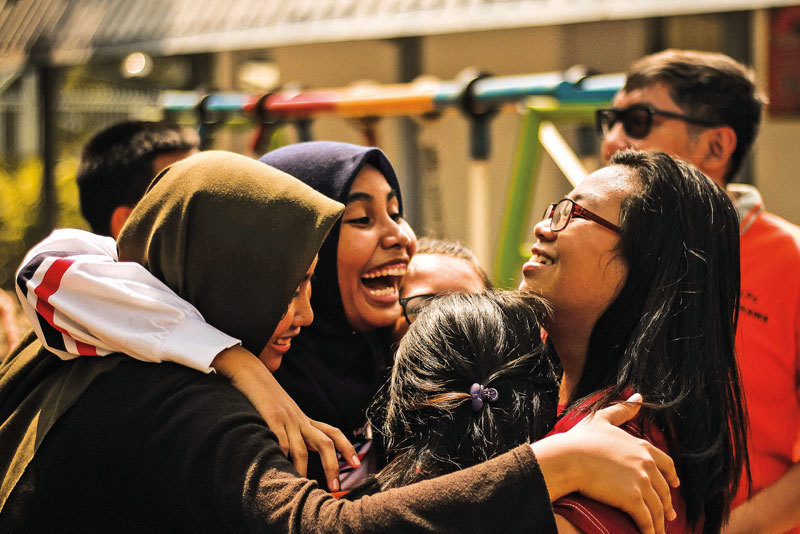
One afternoon, the calm in the village of Papaloang, North Maluku was broken when residents panicked on hearing rumours that Christians from neighbouring Ambon were on their way to the village and were threatening to burn down their homes.
Ayu Kartika Dewi was a teacher in the village at the time, posted there as part of an organization to teach elementary school students. She was shocked at the prejudice the young children had developed. This was the place where just eleven years before sectarian violence had left churches, mosques and homes burned and had split a community in a way that residents of the village were divided according to religious belief.
Surprised that her young students would believe the rumours, not least because Ambon was at least a two-day boat ride away, she decided to address the situation.
“Before I finished my assignment, I asked the school to find a Christian teacher for my replacement because I wanted the students and people there to meet someone from a different religion and ethnic background so they have the opportunity to interact with different community. I want them to kiss the teacher’s hands, learn to read and write and can protect him or her from the riots. This way they will respect each other and will not be so easily provoked.” Ayu said.
Back in Jakarta, Ayu invited friends to discuss what they could do address the issue of tolerance. Coinciding with Indonesian Youth Pledge Day on 28 October 2012, Ayu and seven of her friends of different backgrounds established SabangMerauke. The name, which in its full expansion is Seribu Anak Bangsa Merantau Untuk Kembali (a thousand children of the nation wander about and return home), represents the vast expanse of the archipelago.
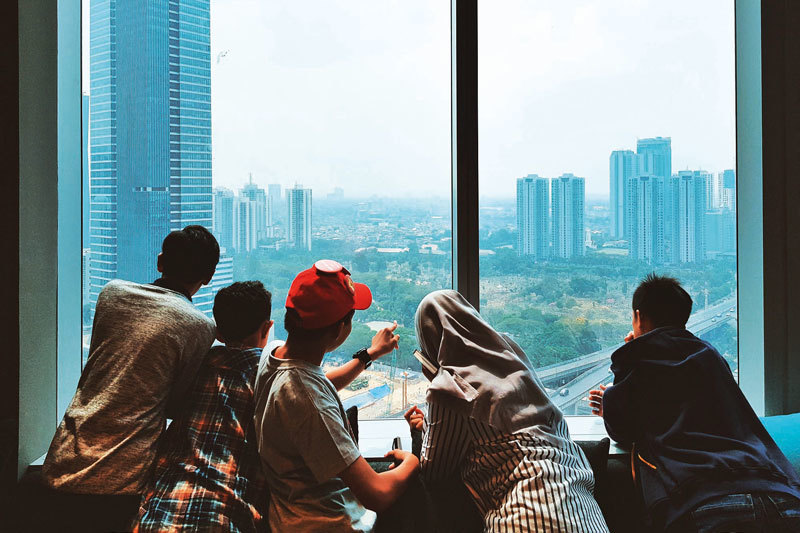
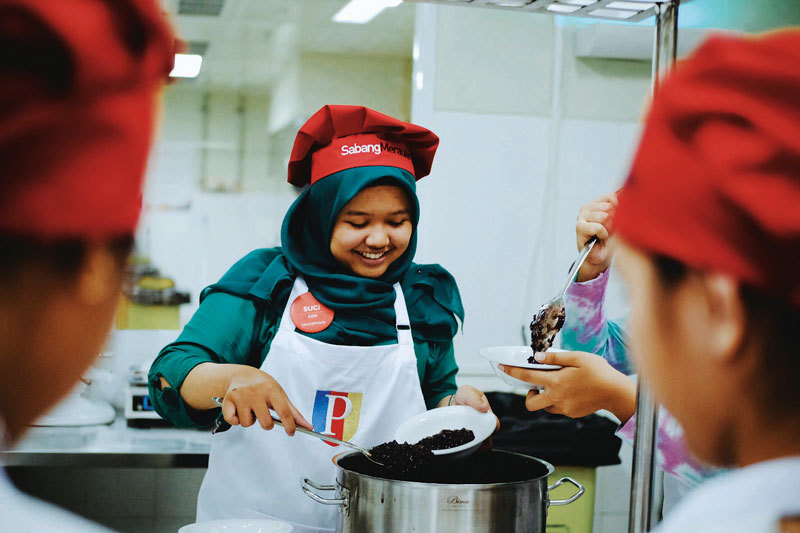
SabangMerauke’s main programme is student exchange, which it considers a strategic way to learn the true value of tolerance, because Ayu believes that tolerance can not only be taught but must also be experienced.
“Actually, from a young age we are taught about morality and citizenship in Pancasila but it is just jargon. We believe that if people meet and interact with people from different backgrounds, we can break all the stereotypes and prejudices.” Ayu noted.
According to Ayu, tolerance in Indonesia nowadays is fraying. Referring to the national research conducted by PPIM UIN Syarif Hidayatullah Jakarta (available on a YouTube video) of a large number of Generation Z Muslim youth and teachers from 34 provinces, it is believed that intolerance and radical thought are rampant in many schools and Universities in Indonesia. And it could get worse if people do not address it.
SabangMerauke aims to open people’s minds especially the young generation. It also hopes to encourage tolerance. The foundation works by inviting junior high school students and college students from the regions through a selection process, to come to Jakarta and stay for three weeks with a family from different backgrounds, including religion, culture, education, ethnicity and economic condition.
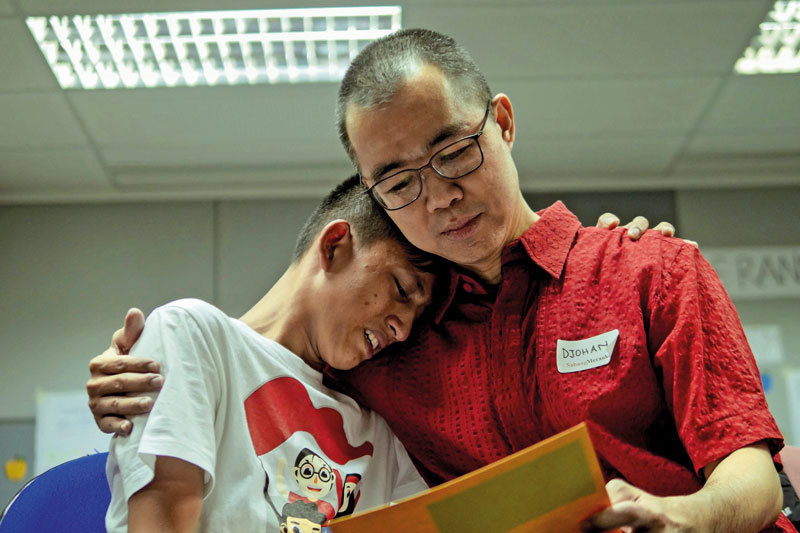
SabangMerauke also selects the families which will host the students. They are required to welcome and accept students from various backgrounds and be a role model for them. The pilot project was in 2013 when the foundation sent 10 junior high schools’ students, 10 college students and involved 10 families in Jabodetabek to host the students.
They also participated in various activities related to tolerance, education and nationality, such as visiting Indonesian war veterans, visiting museums, going to university with their foster sibling and more.
“Our closest relationship is with family, so our programme is not an ordinary student exchange one where they just stay in a dormitory. We place the students in local families of different backgrounds so that there’s a good relationship among them and they can share their experiences. The students can be ambassadors of peace and share positive stories. We want to expand the programme to other places in Indonesia,” Ayu said.
After they finish the programme, the foundation asks participants to run the project in their own region. These projects have included presentations about the value of peace, forming their own reading house, and telling their stories through local radio stations. They are guided by alumni.
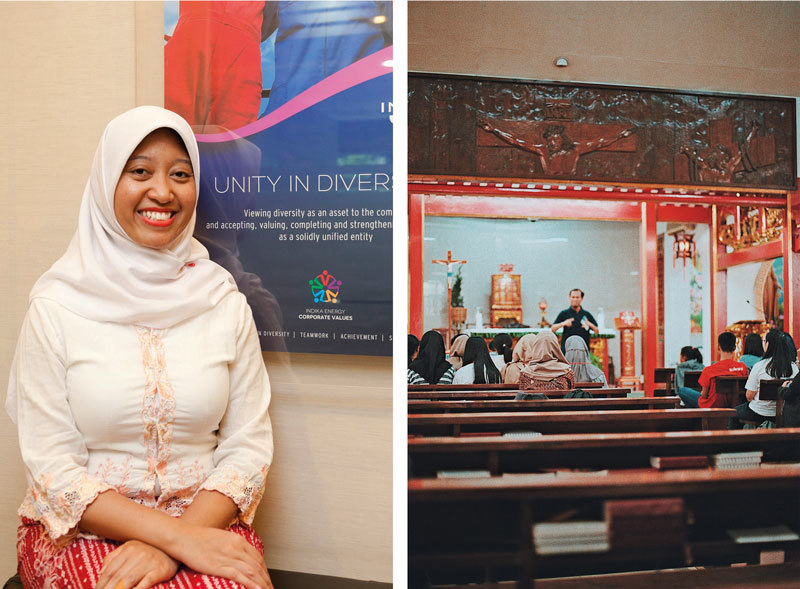
Ayu noted that all Indonesians have an obligation and responsibility to maintain tolerance. Because intolerance comes from every aspect, she suggests that the Indonesian government place emphasis on tolerance in the school curriculum and activities so students can celebrate their differences and eliminate stereotypes. As media, including social media, play a large role in spreading information, Ayu also suggests Indonesians make clean and honest contents.
These will help promote tolerance in Indonesia.






